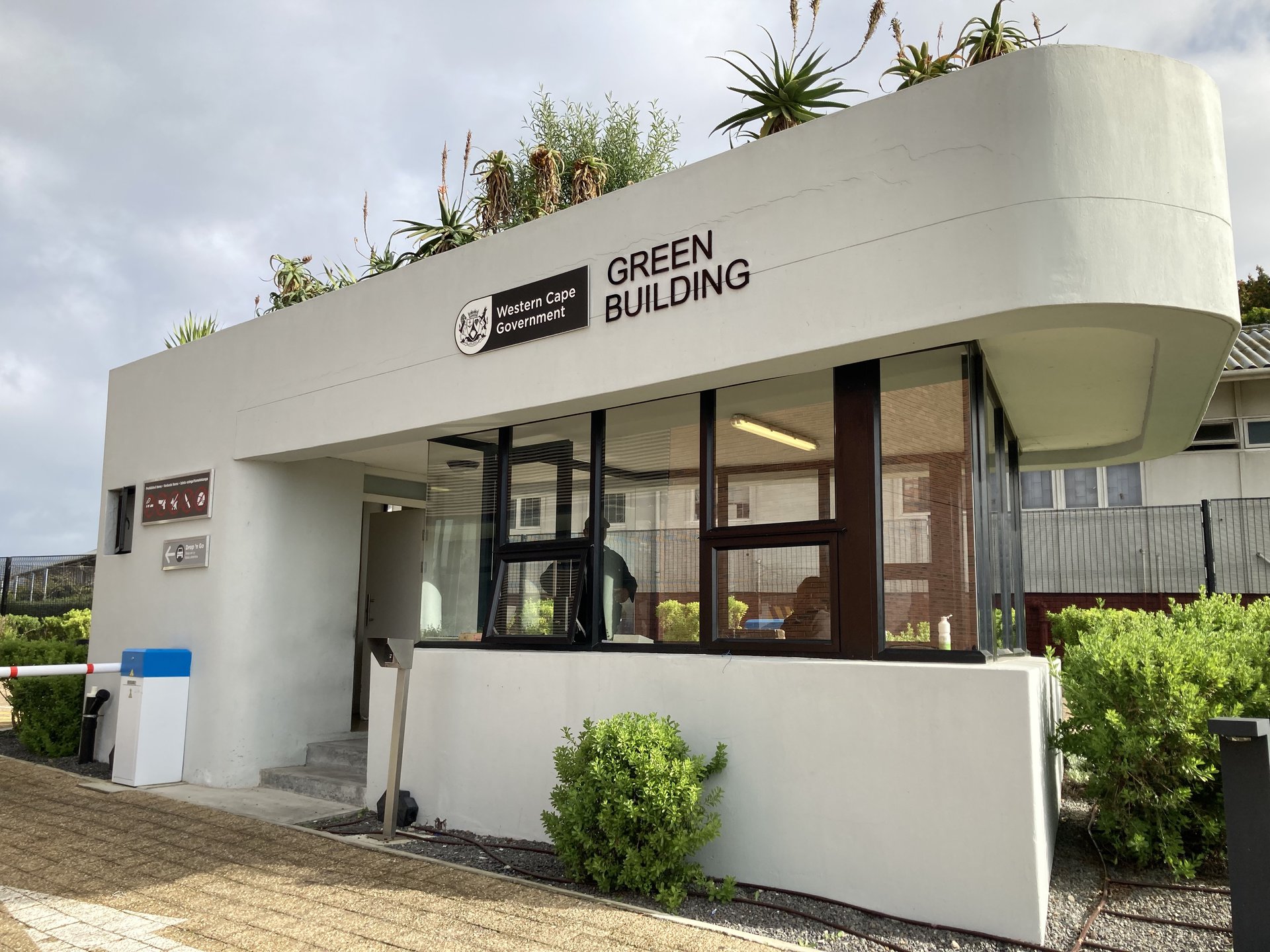
Measuring energy performance is a catalyst to net zero
January 21, 2022
GBCSA’s partnership with the Carbon Trust, supported by the UK PACT (Partnering for Accelerated Climate Transitions) programme to operationalise Energy Performance Certificates (EPCs) is an important first step towards achieving the country’s net zero ambitions.
Governments and private businesses worldwide are committing to achieve net zero carbon for existing buildings by 2050. This ambitious goal requires clear steps along the journey, and ways to monitor progress.
Turning the net zero by 2050 commitment into a reality is a mammoth undertaking. The process involves many acronyms, ambitious targets, detailed discussions, and tough commitments. It can seem complex and confusing, but having the right regulatory frameworks in place can provide clarity to drive decision making. Energy Performance Certificates (EPCs) are an example of such regulation that will focus efforts to ensure energy efficient buildings in the public and private sectors.
The EPC regulations were made effective in 2020, requiring public sector buildings greater than 1000m² and private sector buildings greater than 2000m² to obtain an EPC by December 2022.
Through the real-time process of conducting EPCs in 30 buildings across South Africa, the UK PACT, Carbon Trust and GBCSA project has been making good progress on developing an EPC roadmap for building owners. It will include additional guidelines on getting from an EPC to net zero via energy efficiency, renewables, and carbon offsets. These learnings will feed back into the building of the National Building Energy Performance Register (NBEPR) platform (which is set to be launched in 2022) and into policy recommendations for driving further energy efficiency in buildings through the EPC mechanism.
What are EPCs and how does this new legislation affect building owners?
An EPC provides a snapshot of a building’s yearly operational energy performance by measuring energy consumption (including LPG, electricity, renewables, diesel, and more) per square metre. It’s a colour-coded score from A-G, valid for five years, and is similar to the energy rating found on an electrical appliance. Knowing the energy performance of a building empowers potential buyers and tenants to make informed decisions.
While, at the moment, there is no minimum rating requirement, EPCs provide a useful baseline to understand a building’s current energy consumption. Once the inefficiencies are identified, improvements can be made.
“Because of their significant contribution to South Africa’s greenhouse gas (GHG) emissions profile, buildings are a key part of South Africa’s decarbonisation challenge. Energy efficiency in buildings is a good low hanging fruit to target and set the ball rolling towards net zero,” says GBCSA CEO, Lisa Reynolds.
Jonathan Booth, project lead at the Carbon Trust, adds: “While climate change is the fundamental driver, there are strong commercial arguments for embarking on a net zero journey; for instance, rising energy costs and advancing technologies continuously strengthen the economic case for many of the most effective interventions such as upgrading HVAC systems and managing plug loads.”
EPCs will also provide much needed data to assess and monitor what proportion of the country’s emissions can be attributed to buildings, and how a focus on energy efficiency can make a positive contribution towards South Africa’s Nationally Determined Contributions (NDCs) reduction targets. There is currently no baseline, which means we don’t know how well we are doing or how much carbon we must mitigate to achieve net zero by 2050 for existing buildings.
Operationalising EPCs in South Africa
The focus now is on the development of a robust mechanism to collect and process EPC data and for issuing EPCs. The Carbon Trust, GBCSA, and the South African National Energy Development Institute (SANEDI) recognised the importance of an effective EPC mechanism to drive energy efficiency and reduce carbon emissions from buildings. A grant funding proposal was developed to this effect and submitted to UK PACT. The proposal was successful and work began in March 2021.
The project is led by the Carbon Trust, supported by the GBCSA and some of the immediate priorities identified involve creating awareness, developing an enabling environment for the EPC mechanism, and establishing a National Building Energy Performance Register (NBEPR). This will be managed by SANEDI and the National Department of Mineral Resources and Energy (DMRE).
The project began with a foundational phase of research exploring the PESTLE (political, economic, social, technological, legal, and environmental) factors which impact the EPC legislation process in South Africa and using these to identify what needs to be put in place to make EPCs a success. This also involved looking at global best practice in order to see what could be applied locally.
The next phase involved conducting EPCs with a sample of 30 buildings (15 public and 15 private sector). Through collecting essential EPC data from these sample buildings, learnings have been used to inform the development of an EPC roadmap for building owners with additional guidelines on getting from an EPC to net zero via energy efficiency, renewables, and carbon offsets. These learnings will feed back into the building of the NBEPR platform (which will be launched in 2022) and into policy recommendations for driving further energy efficiency in buildings through the EPC mechanism.
Longer term, the outcomes focus on increasing EPC uptake among building owners, using NBEPR data to inform policy, training, and skills development around EPCs and the legislation, encouraging improvements in energy efficiency, stimulating the implementation of smart and green technologies in buildings, and also informing financial products associated with energy performance.
“On top of the potential energy efficiency and carbon transformation within the built environment, the EPC legislation provides another gem: The roll out and implementation of this legislation will create green jobs – both as Inspection Bodies and in businesses related to the retrofit of energy efficiency technology and solutions in buildings. All adding to the growth of the green economy,” concludes Reynolds.
More about UK PACT
UK PACT is a £60million flagship technical assistance programme under the United Kingdom’s International Climate Finance (ICF) portfolio. It is part of the United Kingdom’s £5.8billion commitment to ICF by 2021, to tackle climate change. The programme is funded by the UK Government’s Department for Business, Energy, and Industrial Strategy (BEIS), with funding currently in place to 2022.
The UK PACT programme is delivered through: Country Programmes, Skills-Shares and Secondments, and the Green Recovery Challenge Fund. The Country Programmes help to fund projects in partner countries (like South Africa), supporting them in the transition to low carbon development and helping them keep their carbon emissions reductions in line with NDC requirements.
Since launching South Africa-UK PACT in July 2020, over £3million of funding has been granted to ten projects in South Africa, spanning three priority sectors: energy, sustainable transport, and sustainable finance.
See more online.

GBCSA tech team member Manti Seleka on site for EPC audit at Karl Bremer building Western Cape






